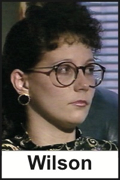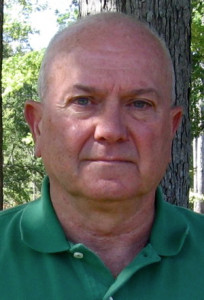Rascals case in brief
In the beginning, in 1989, more than 90 children at the Little Rascals Day Care Center in Edenton, North Carolina, accused a total of 20 adults with 429 instances of sexual abuse over a three-year period. It may have all begun with one parent’s complaint about punishment given her child.
Among the alleged perpetrators: the sheriff and mayor. But prosecutors would charge only Robin Byrum, Darlene Harris, Elizabeth “Betsy” Kelly, Robert “Bob” Kelly, Willard Scott Privott, Shelley Stone and Dawn Wilson – the Edenton 7.
Along with sodomy and beatings, allegations included a baby killed with a handgun, a child being hung upside down from a tree and being set on fire and countless other fantastic incidents involving spaceships, hot air balloons, pirate ships and trained sharks.
By the time prosecutors dropped the last charges in 1997, Little Rascals had become North Carolina’s longest and most costly criminal trial. Prosecutors kept defendants jailed in hopes at least one would turn against their supposed co-conspirators. Remarkably, none did. Another shameful record: Five defendants had to wait longer to face their accusers in court than anyone else in North Carolina history.
Between 1991 and 1997, Ofra Bikel produced three extraordinary episodes on the Little Rascals case for the PBS series “Frontline.” Although “Innocence Lost” did not deter prosecutors, it exposed their tactics and fostered nationwide skepticism and dismay.
With each passing year, the absurdity of the Little Rascals charges has become more obvious. But no admission of error has ever come from prosecutors, police, interviewers or parents. This site is devoted to the issues raised by this case.
On Facebook
Click for earlier Facebook posts archived on this site
Click to go to
Today’s random selection from the Little Rascals Day Care archives….
Click for earlier Facebook posts archived on this site
Click to go to
Today’s random selection from the Little Rascals Day Care archives….
For Junior Chandler, one door opens – will another open?
 Nov. 16, 2013
Nov. 16, 2013
An update from Mark Montgomery, Junior Chandler’s appellate attorney: “[The N.C. Center on Actual Innocence] reviewed Junior’s case but could not find anything that would help him. The ‘kids’ were too young at the time to have anything helpful to say now. Of the two retarded adults who rode Junior’s bus (and testified against him), one is dead and the other incompetent.”
On a somewhat more encouraging note, Mark reports that the governor’s office has notified him that Junior’s clemency application is being considered.
Want to put in a word on Junior’s behalf? Here’s where to write:
Executive Clemency Office
4294 Mail Service Center
Raleigh NC 27699-4294
‘I knew right then it couldn’t be true’
 Aug. 24, 2012
Aug. 24, 2012
My EDENTON7 license plate recently caught the eye of a former Little Rascals Day Care parent who left Edenton.
Although Maria – a pseudonym, as she still has family back home – withdrew her daughter from Little Rascals in 1989 after less than two months, it was because of outside circumstances, not because of any dissatisfaction with the care received. “It was a normal day care, clean and quiet,” she says.
The torrent of ritual-abuse rumors started soon after.
She was unsure what to make of it all until a former classmate, Dawn Wilson, was caught up in the dragnet. “Dawn had sat in front of me in high school,” she recalls. “She was quiet and shy, but she opened up to me about wanting to have a baby. She was a loving person. When I heard her name mentioned, I knew right then it couldn’t be true.”
Maria worked at Hardee’s, where she found it “painful to watch” Betsy Kelly’s parents, Warren and Alice Twiddy, being ostracized by their Wednesday-morning coffee klatch. “They were respected people…. She was the clerk of court. It was like she couldnt believe the town was doing this to her.”
Maria’s most surprising observation: “I think PBS (“Frontline”) changed the minds of a lot of people in Edenton. They saw how the gossip and innuendo had worked.”
Why Mike Easley had to deny errors in Little Rascals trials

Mike Easley
June 19, 2017
“Our criminal justice famously presumes that every accused person is innocent until proven guilty. But once a conviction is obtained, that presumption is turned on its head. Charges were brought, and a jury, which saw evidence and heard from the witnesses firsthand, voted to convict. At that point, finality sets in.
“Prosecutors tasked with defending a conviction against compelling evidence that it was wrongfully secured typically have two choices. They can accept the responsibility for participating — directly or indirectly — in an injustice, or they can insist that nothing went awry or that whatever mistakes may have been made were ‘immaterial’– that is, the jury would have convicted anyway. The justice system strongly pushes them in the latter direction. Ambitious, hard-charging prosecutors know that the way to the top is amassing guilty verdicts, not admitting mistakes. In 47 states [including North Carolina], their bosses – the county district attorney, the state’s attorney general – are elected. Incompetence, or appearing ‘soft on crime,’ can be fatal at the ballot box….
“The refusal to admit a mistake – or even an act of bad faith – holds true regardless of whether the prosecutor defending the conviction had any involvement at the trial level, personally knew the key players or even worked in the same office…. This may be due, in part, to a phenomenon that [Northeastern University law professor Daniel Medwed] calls ‘the conformity effect.’ Prosecutors… are ‘culturally aligned with that side and tend to defer to their peers who were the original decision makers.’ “
– From “For shame” by Lara Bazelon at Slate (April 7, 2016)
Although examples of such prosecutorial lockstep are legion, most relevant here is N.C. Attorney General Mike Easley’s response to the overturning of the convictions of Little Rascals defendants Bob Kelly and Dawn Wilson. Easley, himself a former district attorney (and future governor), laid it on thick:
“The decision casts no doubt on the credibility of the children or the integrity of the investigation…. In both cases, the facts supporting the convictions were clear and overwhelming. [The N.C. Court of Appeals] disregarded these facts and misapplied the law.”
Four months later, throwing in the towel after the N.C. Supreme Court upheld the Court of Appeals, Easley managed to find fault not with the prosecutors but with the children. “All prosecutors know that cases involving children weaken with age,” he said. “A retrial in this matter will be extremely difficult.”
![]()
Bob Kelly: ‘I had nothing to be ashamed of’
Oct. 11, 2011
In 1989 Bob Kelly was charged with 100 counts of child molestation.
In 1992 he was convicted and sentenced to 12 consecutive life sentences.

In 1995 his conviction was overturned and he was released from Central Prison.
“It was the best six years of my life,” he says of his time behind bars, “because it set me up for the rest of my life.”
When he walked out, Kelly was a man who had determined “never to feel ashamed, because I had nothing to be ashamed of.”
Today, remarried and retired at 63, he lives in a tidy suburban house just outside Sanford.
Perhaps the anger he still feels toward those who conspired to imprison him has been compartmentalized.
His attention goes to gardening (“500 pounds of tomatoes this year”), writing and visiting inmates, carving walking sticks out of old Christmas tree trunks, playing Sudoku, hitting golf balls and reading only those Westerns in which “the good guy always wins in the end.”
And he still cooks and cans the spaghetti sauce he once served every Friday at the Little Rascals Day Care Center.
“Freedom don’t ever get old,” he says.











0 CommentsComment on Facebook